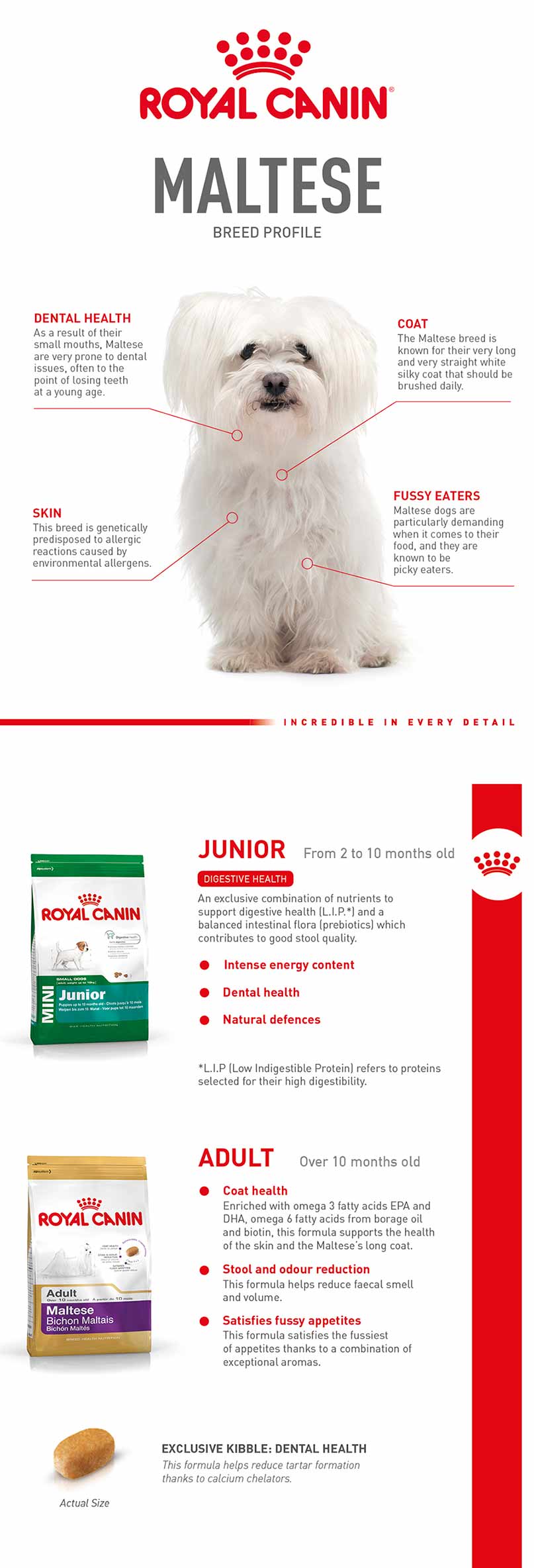Did you know that the amount of food a Maltese puppy should eat depends on their age, size, and activity level? Just like their adorable appearance, these fluffy little pups have their own unique dietary needs. So, how much food should a Maltese puppy really be consuming?
When it comes to feeding a Maltese puppy, it’s important to find the right balance. These tiny dogs have a high metabolism and can easily become overweight if overfed. Generally, a Maltese puppy should be fed small, frequent meals throughout the day to keep their energy levels steady. It’s recommended to consult with a veterinarian to determine the appropriate portion size and feeding schedule based on your Maltese puppy’s specific requirements. Remember, providing a balanced and nutritious diet is essential for their growth and overall well-being.
Wondering how much to feed your Maltese puppy? It’s important to provide the right amount of food for their growth and development. Start by consulting your vet for a specific feeding guideline based on your puppy’s age and weight. Generally, Maltese puppies require small, frequent meals throughout the day, divided into 3-4 portions. Use a quality puppy food with the correct balance of nutrients. Remember to always have fresh water available. Additionally, monitor your puppy’s weight and body condition to adjust their portion sizes as needed.

How Much Should a Maltese Puppy Eat?
Maltese puppies are known for their small size and adorable appearance. As a responsible pet owner, it’s important to provide proper nutrition for your furry friend. In this article, we will dive into the topic of how much a Maltese puppy should eat to ensure their health and wellbeing.
Understanding the Nutritional Needs of Maltese Puppies
Maltese puppies have specific nutritional requirements that differ from adult dogs. During their growth stage, they require a balanced diet that promotes proper development. It’s crucial to provide them with the right amount of proteins, carbohydrates, fats, vitamins, and minerals.
When selecting a commercial puppy food for your Maltese, opt for high-quality options specifically formulated for small breed puppies. These foods contain essential nutrients in the right proportions to support healthy growth. Look for protein sources like chicken or fish, as well as nutrient-rich ingredients such as sweet potatoes and brown rice.
In addition to a balanced diet, it’s important to ensure your Maltese puppy has access to clean and fresh water at all times. Proper hydration is essential for their overall health and digestion.
Feeding Guidelines for Maltese Puppies
Feeding guidelines can vary depending on the specific brand of puppy food, as well as your puppy’s age, weight, and activity level. It’s always best to consult with your veterinarian for personalized advice. However, as a general guideline, here are some common recommendations:
- Age 8-12 weeks: 3-4 meals per day, about 1/4 to 1/3 cup of puppy food per meal.
- Age 12-16 weeks: 3 meals per day, about 1/3 to 1/2 cup of puppy food per meal.
- Age 16-24 weeks: 2-3 meals per day, about 1/2 to 3/4 cup of puppy food per meal.
- Age 24 weeks and older: 2 meals per day, about 1/2 to 1 cup of puppy food per meal.
It’s important to remember that these are general guidelines, and individual puppies may have different needs. Monitor your Maltese puppy’s body condition and adjust their portion sizes accordingly. Overfeeding can lead to obesity, while underfeeding may result in poor growth and development.
Different Types of Diets for Maltese Puppies
Besides commercial puppy food, there are other diet options that you can consider for your Maltese puppy. Let’s explore a few:
Raw Diet:
Some pet owners choose to feed their Maltese puppies a raw diet, also known as a BARF (Biologically Appropriate Raw Food) diet. This consists of feeding raw meat, bones, fruits, and vegetables. While this diet can provide certain benefits, such as improved coat condition and oral health, it’s essential to ensure a proper balance of nutrients.
Homemade Diet:
If you prefer to prepare your Maltese puppy’s meals at home, it’s crucial to consult with a veterinary nutritionist to ensure they are receiving all the necessary nutrients. Homemade diets require careful planning and consideration of the appropriate portion sizes.
Combination Diet:
Some pet owners choose to combine commercial puppy food with fresh ingredients like lean meats, vegetables, and grains. This allows for variety in the diet while ensuring proper nutrient intake. If you opt for a combination diet, it’s important to maintain a balance and not exceed the recommended portion sizes.
Healthy Weight Management for Maltese Puppies
Maintaining a healthy weight is crucial for the overall wellbeing of your Maltese puppy. Obesity can lead to a myriad of health issues, including joint problems, heart disease, and a shortened lifespan. Here are some tips for managing your Maltese puppy’s weight:
- Follow the recommended feeding guidelines and avoid overfeeding.
- Avoid excessive treats and opt for healthy alternatives such as carrot sticks or small pieces of cooked chicken.
- Provide regular exercise opportunities such as daily walks or play sessions to keep your Maltese puppy active.
- Monitor their body condition regularly and consult with your veterinarian if you notice any changes.
Frequent Questions About Feeding a Maltese Puppy
1. Can I free-feed my Maltese puppy?
Free-feeding, or leaving food out all day for your puppy to eat at their own pace, is generally not recommended. It can lead to overeating and poor weight management. Feeding scheduled meals ensures portion control and allows you to monitor your puppy’s intake.
2. Should I give my Maltese puppy supplements?
In most cases, a high-quality puppy food should contain all the necessary nutrients for your Maltese puppy. However, it’s always best to consult with your veterinarian before adding any supplements to their diet.
3. When can I transition my Maltese puppy to adult dog food?
The transition from puppy food to adult dog food varies depending on the brand and your puppy’s individual needs. As a general guideline, the transition usually occurs around 12 months of age. Consult with your veterinarian for personalized recommendations.
4. Can I give my Maltese puppy human food?
While it may be tempting to share your meals with your Maltese puppy, it’s important to avoid feeding them human food. Certain foods can be toxic to dogs, such as chocolate, onions, garlic, and grapes. Stick to a balanced and appropriate diet formulated specifically for puppies.
Caring for Your Maltese Puppy’s Feeding Area
Creating a clean and safe feeding area for your Maltese puppy is essential for their health and hygiene. Here are a few tips to keep in mind:
- Choose a quiet and designated area for mealtime to minimize distractions and create a routine.
- Use stainless steel or ceramic bowls, which are easier to clean and less likely to harbor bacteria.
- Wash the feeding bowls regularly with hot, soapy water to prevent the buildup of bacteria.
- Provide fresh water in a separate bowl and change it daily to ensure cleanliness.
Conclusion
Feeding a Maltese puppy requires careful consideration of their nutritional needs and portion sizes. It’s vital to provide them with a balanced diet, whether through commercial puppy food or other feeding options. Remember to monitor their weight, adjust portion sizes as needed, and consult with a veterinarian for personalized advice. By taking a proactive approach to your Maltese puppy’s diet, you can contribute to their overall health and happiness.
Key Takeaways: How Much Should a Maltese Puppy Eat?
- A maltese puppy should be fed small, frequent meals throughout the day to support their energy levels and growth.
- Portion control is essential to prevent overeating and maintain a healthy weight for your maltese puppy.
- Consult your veterinarian to determine the appropriate amount of food for your maltese puppy based on their age, size, and activity level.
- High-quality, balanced puppy food is recommended for meeting your maltese puppy’s nutritional needs.
- Regularly monitor your maltese puppy’s body condition and adjust their food intake accordingly to ensure they are not under or overfed.
Frequently Asked Questions
Welcome to our FAQ section on feeding your Maltese puppy! Below are some commonly asked questions to help you determine how much to feed your furry friend.
1. How often should I feed my Maltese puppy?
It is recommended to feed your Maltese puppy three times a day. Puppies have smaller stomachs and high energy levels, so regular meals throughout the day ensure they receive the necessary nutrients and energy to grow and play.
Divide your puppy’s daily food intake into three equal meals, providing a consistent feeding schedule. This not only helps with digestion but also prevents overeating or underfeeding.
2. How do I determine the appropriate portion size for my Maltese puppy?
The portion size for your Maltese puppy varies depending on their age, weight, and activity level. A general guideline is to feed your puppy approximately 1/4 to 1/2 cup of high-quality puppy food per day. However, it’s essential to consult with your veterinarian for a more accurate recommendation based on your puppy’s specific needs.
Keep an eye on your puppy’s body condition. If they are gaining too much weight, reduce the portion size slightly. Conversely, if they appear too skinny or lack energy, consider increasing the portion size. Regular monitoring and adjustments ensure your puppy is growing at a healthy rate.
3. Should I free-feed or have scheduled meal times for my Maltese puppy?
It is generally recommended to establish a regular feeding schedule for your Maltese puppy rather than free-feeding. Scheduled meal times help with potty training and ensure your puppy eats at consistent intervals, allowing for better digestion.
By providing meals at set times, you can monitor how much your puppy is eating and identify any changes in appetite or behavior. It also aids in maintaining a healthy weight since free-feeding can lead to overeating and weight gain.
4. Can I give my Maltese puppy treats in addition to regular meals?
Yes, you can give your Maltese puppy treats as part of their diet. However, it’s important to choose treats specifically formulated for puppies and ensure they are given in moderation. Treats should not exceed 10% of your puppy’s daily calorie intake.
Remember to factor in the calories from treats when determining the appropriate portion size for their regular meals. Balance is key to maintaining a healthy diet for your Maltese puppy.
5. When should I transition from puppy food to adult dog food for my Maltese?
The transition from puppy food to adult dog food typically occurs around 12 months of age. However, it is best to consult with your veterinarian to determine the appropriate timing based on your Maltese’s individual growth and development.
Gradually introduce the adult dog food by mixing it with the puppy food over a period of 7-10 days. This allows your Maltese’s digestive system to adjust to the new food slowly. Remember to monitor your dog’s weight and overall health during the transition, making further adjustments if needed.

Summary
Feeding your Maltese puppy the right amount of food is crucial for their health and growth. It’s recommended to follow the guidelines provided by the breeder or veterinarian to determine the appropriate portion size. Puppies need to be fed several small meals throughout the day to support their high energy levels. As they grow, the amount of food can be adjusted based on their weight and activity level.
It’s important not to overfeed your Maltese puppy as excess weight can lead to health problems. Make sure to choose a high-quality puppy food that is specially formulated for small breeds. Regularly monitoring your puppy’s weight and consulting with the vet will help ensure they are getting the right amount of food for their needs. Remember, a healthy and happy Maltese puppy starts with a well-balanced diet.
